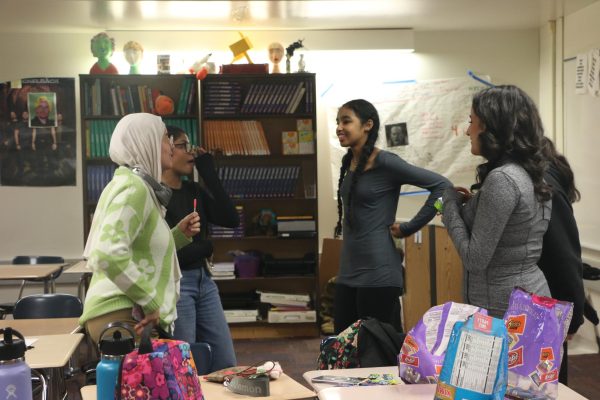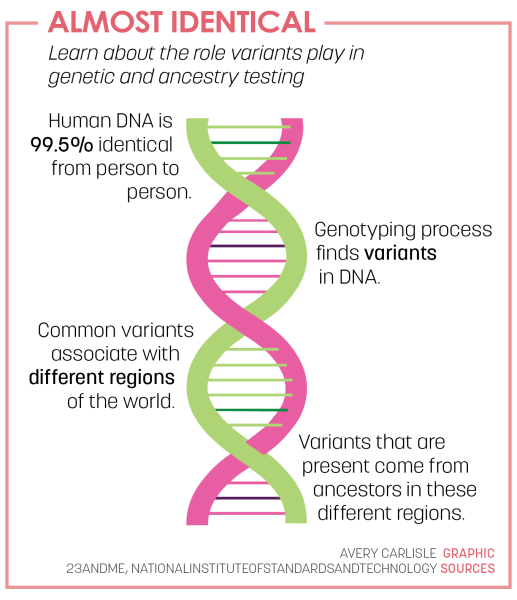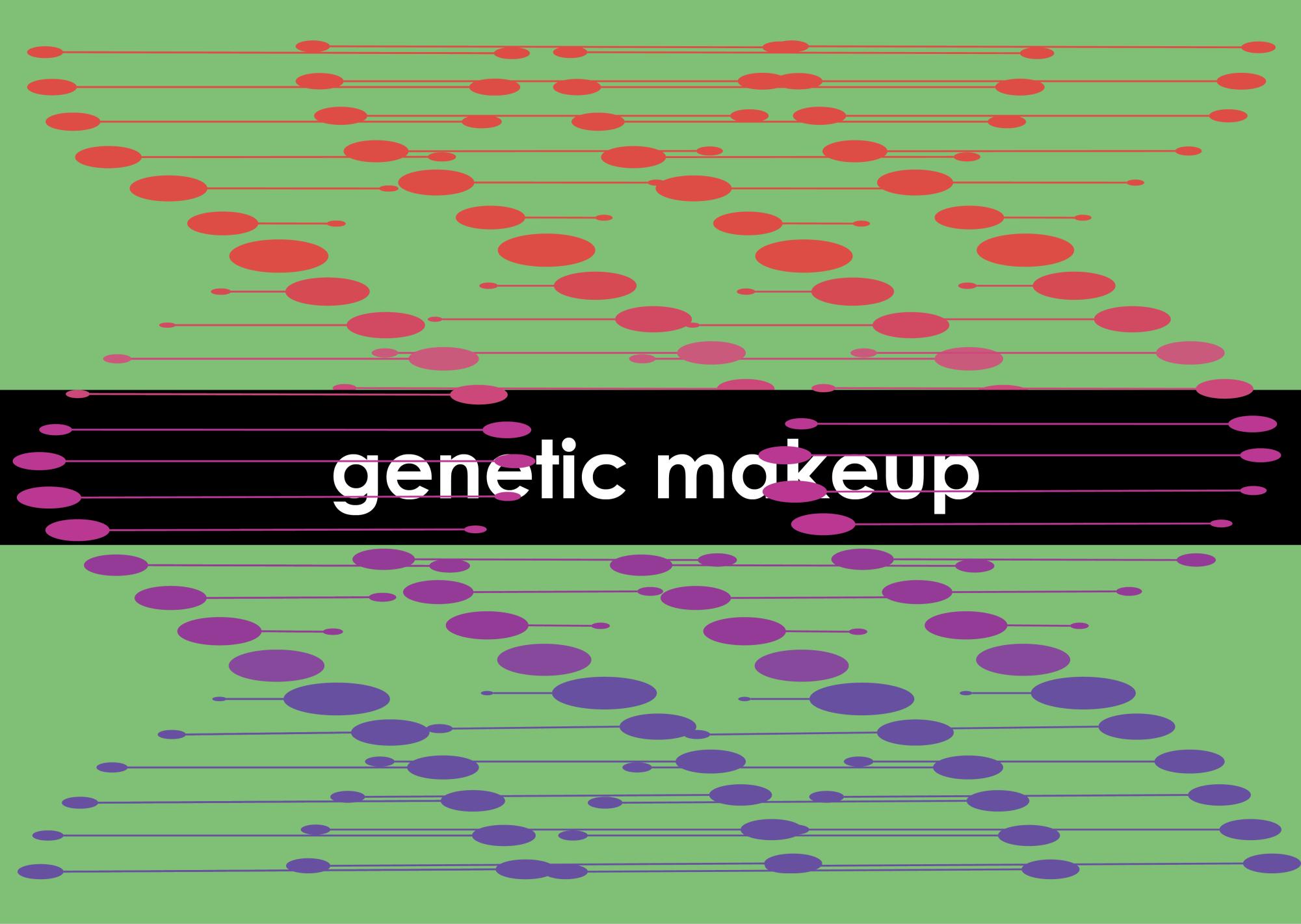When sophomore Solomon Seif took his first-ever ancestry test using 23&Me, he said he wasn’t remotely surprised by the results. He comes from a family that values traditions and family stories, and Seif said he knew the composition of his family’s genes before he took his own test.
“I (am) about 75% Ashkenazi Jewish, (and) the other 24.9% (is) Western European. The other .1% (is) Siberian,” Seif said. “(My results) actually made a lot of sense. My grandfather is 100% Ashkenazi Jewish, my dad is 100% Ashkenazi Jewish, and my mom is 50% (European), and (her) other 50% is Ashkenazi Jewish.”
Seif also said that with both sides of his family having Ashkenazi Jewish ancestry he is relatively knowledgeable about the history of his ancestors.
“My family is from Lithuania, and the history of my family is pretty well kept,” he said. “We’ve kept it with us for a long time because back in ancient Israel we were a tribe of the Israelis called the Levites. So, we’ve kept that idea in remembrance of our family line pretty strong.”
Seif’s expansive knowledge of his family’s history is not unique. According to a study conducted by Brigham Young University and reported on BYU News, 77% of adolescent participants knew a lot about their family history. BYU News also said knowing one’s genetics and family history typically leads to a more developed sense of identity.
Genetics only part of story
Along those lines, AP Biology teacher Eric Rauch said ancestry and genetics play a major role in personality, but they’re not the only factor. He said surrounding environments greatly influence the way genes are expressed.
“Genetics play a real role at the base metabolism of who we are in every physical sense and mental sense,” Rauch said. “We used to think that it was all pretty much ingrained in our DNA. Over time, especially the last 10 years, the more we learn about molecular biology, we’re finding out that the environments we’re in is really affecting how DNA is expressed.”
Rauch said he believes a person’s environment and cultural upbringing have more of an impact on their behavior and personality than pure genetics, which contradicts the beliefs he said he had 20 years ago.
“As time goes on we’re really learning the environments we are put in are molding us more than we ever thought, so (we are impacted by) probably 60% (environmental factors) and 40% (genetics).”

But, Seif said his genetics play only a small part in his cultural identity. He said growing up around his family’s traditions helped him connect more to his ancestry and culture.
“We hold a lot of our Ashkenazi traditions,” he said. “We keep a lot of our Hanukkah traditions, (around) Hanukkah season, and through almost all of our Jewish holidays, we keep the traditions of our ancestors in Lithuania and Europe.”
For his part, senior Antonios “Tony” Nikolaou said holiday traditions help him connect with his family members and ancestors from Cyprus, an island in the Mediterranean by Turkey and Greece.
“We celebrate Eastern Orthodox (holidays),” Nikolaou said. “It’s like a big family gathering, and we break Lent.”
While Seif’s ancestry is highlighted during Jewish holidays, Seif said his Yiddish and Ashkenazi heritage is intertwined with his daily life.
“I refer to my grandparents as (the Yiddish words for Grandma and Grandpa:) ‘Bubbe’ and ‘Zayde’, (and) they make a lot of Ashkenazi Jewish food like ‘Babka,’” Seif said. “(My culture) is not something I tend to think about all the time because (our traditions are) just so ingrained into daily life.”
Nikolaou said he and his family in the United States partake in the same cultural customs as his family in Cyprus.
“Because (my family) moved from Cyprus, a lot of our cultural customs are the same,” Nikolaou said.
Seif said while cultural traditions have been passed down through generations in his family, physical objects and lessons have also been passed down.
“Books themselves have lasted throughout my family’s history, just because of the idea that learning is an important part of life, and that you should never stop learning, which is something my grandfather taught me,” Seif said.
Names are important
Rauch said another way to celebrate ancestry is through tracing the meaning of last names. Rauch has mostly Germanic roots and said he knew he was German before taking an ancestry test using Ancestry.com because of his last name.

“(My ancestry results were) not a shock to me; even my name means ‘smoke’ in German, so I knew that I was mostly German,” Rauch said.
Seif said his last name was another way he stayed connected to his roots.
“My last name is Seif, and that comes from my Dad’s side,” he said. “We can kind of track back the name Seif to the United Kingdom, and we can probably track down the origins of the name Seif to either meaning ‘sword’ in Arabic or ‘soap’ in some old European languages.”
Nikolaou also said knowing about his last name gave him valuable information about his past.
“In Cyprus, the last name comes from the father’s name,” Nikolaou said. “So the last name Nikolaou comes from someone who was named Nikolas, and then Nikolaus means ‘people of Nikolas.’”
Family traditions play a role
Seif said values and lessons, which have been passed down by his ancestors from generation to generation, shape his decision-making and influence him in his daily life.
“Lectures of good work ethic and the ideas of being a smart versus a clever person are all ideals that come from my ancestry and are things that I keep close to my heart, and things that influence me throughout my day-to-day life,” he said.
Seif also said he draws on the stories of his ancestors for inspiration, especially due to the adversity they faced as Jews in Lithuania during the rise of Nazism across Europe.
“I feel like (my ancestors’ lessons) give me inspiration, knowing that even my family, coming from such a hard time, can make it and be happy and figure out a way to live out good lives,” Seif said. “It gives me inspiration knowing that even I could do that now, and that I can build myself up to create lessons and a family and a community like they had created. That gives me a sort of hope for the future.”
More than just DNA
While Nikolaou is glad he took an ancestry DNA test, he said stories from his ancestors and his own cultural ties are more important to him than his genetic makeup.
“At the end of the day the DNA test is just numbers,” Nikolaou said. “(The test) gives me a gist of genetically where I might be from, but the stories actually imbed me to a place in the world and a culture.”
Seif said he agreed with Nikolaou, and his ancestry test’s main purpose was to corroborate the stories of his ancestors.
“Stories most definitely (are more important to me than my DNA test). I’m aware of my ancestry, the test itself doesn’t mean anything to me other than just extra information that proves the stories (I’ve learned) are true. But the lessons that get passed down are what will influence me for the rest of my life.”
Rauch said, while he doesn’t put too much emphasis on his own ancestry and genetics tests, they can give people an important sense of identity.
“I think (ancestry tests) are very anecdotal, but they give you an idea of, at least, where you come from.”




